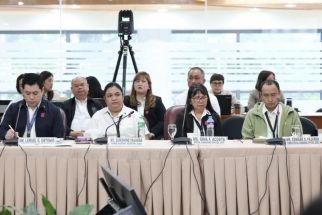Phl: Joint projects not enough to measure ties
MANILA, Philippines - It is not the number of joint projects with China but also the prevalence of an environment that makes such partnerships possible that should measure the quality of the relationship between the Association of Southeast Asian Nations (ASEAN) and the Asian giant, Foreign Affairs Secretary Albert del Rosario said yesterday.
Del Rosario issued the statement at the ASEAN-China Ministerial Meeting at Naypyitaw, Myanmar.
While acknowledging the continuing development of ASEAN-China relations across various fields, Del Rosario cited the need for the creation and preservation of an environment conducive to the further deepening of relations.
“The continued deepening of our relationship, however, must not only be seen in the numbers of projects, but also in the enabling environment that makes such projects possible. Such an environment must be guided by the rule of law,” Del Rosario said before outlining the Philippines’ Triple Action Plan (TAP) that aims to reduce and manage tensions in the South China Sea and West Philippine Sea.
“Developments on the ground and on the seas should equally be amicable to reflect and complement the commitment with which we pursue our diplomatic dialogue,” he said.
“The strength of our relationship must therefore not only be measured by the number of projects we cooperatively undertake,” he pointed out.
Del Rosario highlighted the critical role of people-to-people interaction and connectivity in fostering a meaningful sense of community among ASEAN and Chinese peoples.
Southeast Asian countries were seen as reluctant to challenge China’s questionable activities in the South China Sea as some member countries are heavily dependent on Chinese aid and investment.
In 2012, the 10-nation bloc – for the first time in its 45-year history – failed to issue a joint communiqué at the end of the summit in Cambodia because Phnom Penh refused to include any reference to a discussion of the sea disputes.
China’s close ally Cambodia, which was ASEAN chair at the time, had consistently opposed any mention of the Philippines’ Panatag (Scarborough) Shoal in the joint statement and announced that a joint communiqué “cannot be issued.”
On Friday, Del Rosario reminded summit participants of the deteriorating situation in the South China Sea and West Philippine Sea due to “an increased pattern of aggressive behavior and provocative actions” in the region. He was apparently referring to China’s brazen staking of its claim over some islets, shoals, coral reefs and sandbars within the exclusive economic zones of other countries, including the Philippines.
The ASEAN foreign ministers acknowledged the urgent need to address the tensions in the South China Sea in a manner that is peaceful and constructive, consistent with the Declaration on the Conduct of Parties in the South China Sea (DOC) and in accordance with international law.
The TAP contains “immediate, intermediate and final approaches” to address the territorial issues in the region.
As an immediate approach, the TAP calls for a moratorium on specific activities that can escalate tension.
“On an immediate basis, ASEAN, in demonstration of its leadership, must call for a cessation of activities that escalate tension, pursuant to Article 5 of the ASEAN-China Declaration on the Conduct of Parties in the South China Sea (DOC),” Del Rosario said.
“Finally, through arbitration, which is consistent with the DOC, there will be a clarification of entitlements to bring the disputes to a final and enduring resolution in accordance with international law, particularly UNCLOS (United Nations Convention on the Law of the Sea),” he said.
While the Philippines is calling for a freeze on provocative acts in the South China Sea and West Philippine Sea, China has announced plans to build lighthouses on five islands in disputed areas.
- Latest
- Trending

































